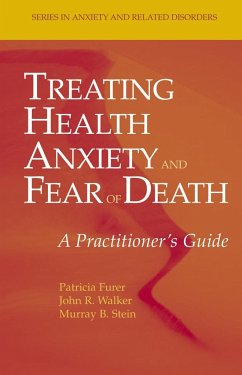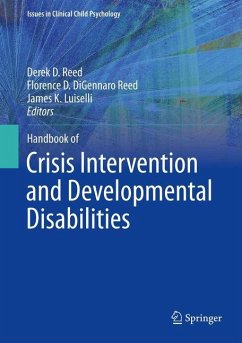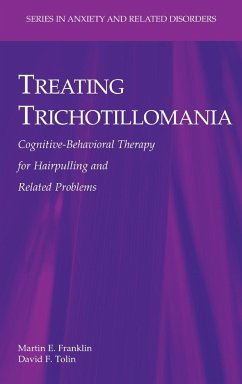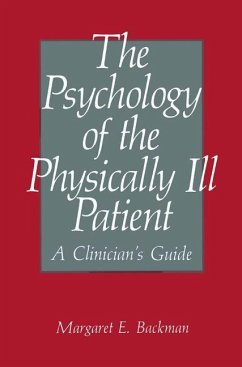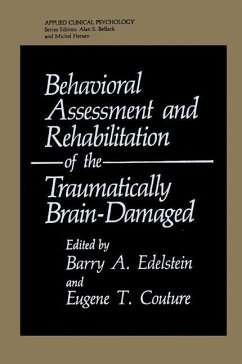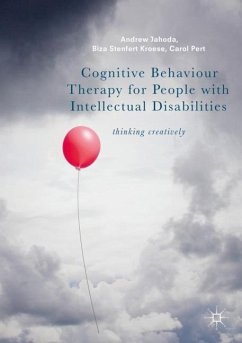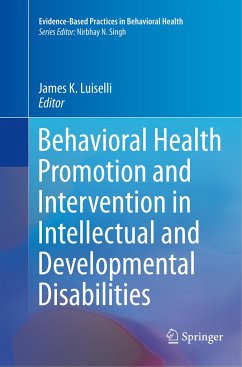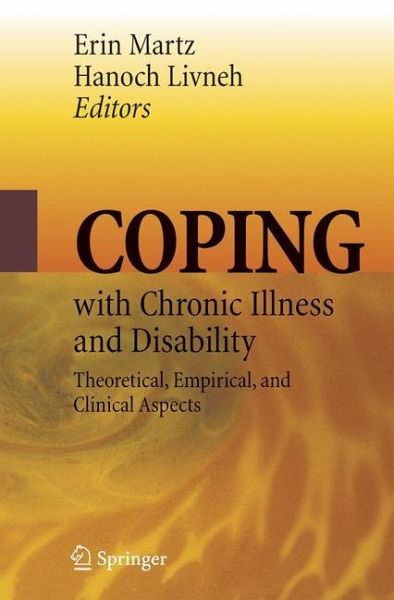
Coping with Chronic Illness and Disability
Theoretical, Empirical, and Clinical Aspects
Herausgegeben: Martz, Erin; Livneh, Hanoch
Versandkostenfrei!
Versandfertig in 1-2 Wochen
86,99 €
inkl. MwSt.

PAYBACK Punkte
43 °P sammeln!
Individuals' responses to their chronic illness or disability (CID) vary widely. Some are positive and productive, some negative and self-defeating, and some have elements of both. "Coping with Chronic Illness and Disability" synthesizes the growing literature on these coping styles and strategies by analyzing how individuals with CID face challenges, find and use their strengths, and alter their environment to fit their life-changing realities.The book's first section provides readers with the major theories and conceptual perspectives on coping, with special emphasis on social aspects and mo...
Individuals' responses to their chronic illness or disability (CID) vary widely. Some are positive and productive, some negative and self-defeating, and some have elements of both. "Coping with Chronic Illness and Disability" synthesizes the growing literature on these coping styles and strategies by analyzing how individuals with CID face challenges, find and use their strengths, and alter their environment to fit their life-changing realities.
The book's first section provides readers with the major theories and conceptual perspectives on coping, with special emphasis on social aspects and models of coping with different types of CID. In Part Two, an array of specific medical conditions is covered. Each chapter supplies a clinical description, current empirical findings on coping, effective medical, physical, and psychological interventions, employment issues, and social concerns. This book includes: Up-to-date information on coping with high-profile conditions, suchas cancer, heart disease, diabetes, arthritis, spinal cord injuries, and traumatic brain injury, in-depth coverage of HIV/AIDS, chronic pain, and severe mental illness, coverage of therapeutic modalities adopted for treatment of people with CID, review of the current state of coping theory and research, appendix of instruments frequently used in assessment of coping.
The editors' skillful balance between theoretical and practical material will help rehabilitation specialists (particularly psychologists, counselors, social workers, and health-care providers) develop new insights into promoting successful coping, and discern new means of changing its less effective forms. Students in the helping professions, as well as individuals experiencing CID, may also find this multifaceted book useful for understanding some of the psychosocial dynamics of living with CID.
The book's first section provides readers with the major theories and conceptual perspectives on coping, with special emphasis on social aspects and models of coping with different types of CID. In Part Two, an array of specific medical conditions is covered. Each chapter supplies a clinical description, current empirical findings on coping, effective medical, physical, and psychological interventions, employment issues, and social concerns. This book includes: Up-to-date information on coping with high-profile conditions, suchas cancer, heart disease, diabetes, arthritis, spinal cord injuries, and traumatic brain injury, in-depth coverage of HIV/AIDS, chronic pain, and severe mental illness, coverage of therapeutic modalities adopted for treatment of people with CID, review of the current state of coping theory and research, appendix of instruments frequently used in assessment of coping.
The editors' skillful balance between theoretical and practical material will help rehabilitation specialists (particularly psychologists, counselors, social workers, and health-care providers) develop new insights into promoting successful coping, and discern new means of changing its less effective forms. Students in the helping professions, as well as individuals experiencing CID, may also find this multifaceted book useful for understanding some of the psychosocial dynamics of living with CID.





